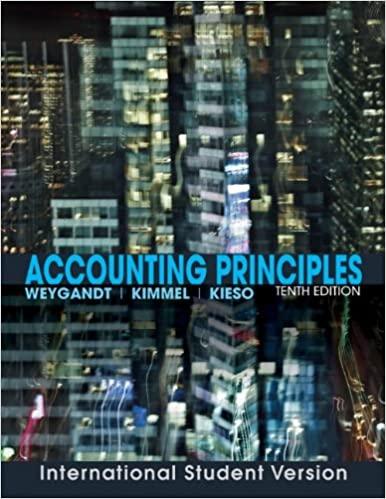Answered step by step
Verified Expert Solution
Question
1 Approved Answer
Planned Costs and Financing for Golf Course The City plans to sell the bonds on February 1 , 2 0 2 1 . Because the
Planned Costs and Financing for Golf Course
The City plans to sell the bonds on February Because the bonds are a term
issue, bond principal matures in full on February Interest is payable each
August and February beginning August The bond covenant requires that
assets equal to onetenth of the bond principal be transferred to a restricted account
within the GEF on December of each year. Whitt observes a calendar fiscal year.
Simmons Design and Construction, Inc. Simmons has been awarded the contract
to develop the golf course. Construction will commence February and be
completed no later than May so it can open for business during June. The
contract stipulates that progress billings from Simmons will be paid within days
of receipt, with percent retainage held pending completion and acceptance of the
project. The city engineer will inspect the contractor's work and approve progress
payments.
Accounting for the GEF will be done by the city's existing accounting department
a General Fund department which will bill the GEF for services rendered at the
end of the year. To help the GEF get on its feet financially, no interfund payables will
be settled in cash during
The following events and transactions occurred during the year ended December :
January : Whitt Falls formally established the GEF; the fund's first transaction
was the receipt, in cash, of the capital contribution from the General Fund.
January : The city acquired the adjacent parcel of land from the private owner
for the planned $
February : The revenue bonds were sold at par $
February : Development of the golf course itself and construction of the clubhouse
commenced.
March : Simmons submitted the first progress billing of $ The billing was
approved and set up as a construction contracts payable after deducting the
percent retainage. Because of the short duration of the construction period,
no construction in progress accounts will be used. $ of the amount billed
represents the cost of sod, sprinklers, landscaping, and fencing which the city
classifies as "improvements other than buildings" The balance applies to the cost
of the clubhouse buildings
April : The construction contracts payable currently due Simmons was paid.April : The second progress billing from Simmons, $ was approved and
set up as a construction contracts payable after deducting the percent retainage;
$ applies to sod, sprinklers, landscaping, and fencing which is now fully
installed with the remainder to the clubhouse building.
May : The construction contracts payable currently due Simmons was paid.
May : Simmons' third and final progress billing, $all of which represents
clubhouse construction costs was approved and set up as a construction contracts
payable after deducting the percent retainage.
May : The construction contracts payable currently due Simmons was paid.
June : The new golf course was formally accepted by the City without need
for "touchup work and all remaining amounts due to Simmons were paid.
June : The City acquired golf course maintenance equipment by entering into a year
lease. The first lease payment of $ was paid on June when the equipment
was delivered. The remaining lease payments of $ each will occur on the first,
second, and third anniversary of the first payment.
Assume that the interest rate on the lease is percent.
June : Inventory in the amount of $ was acquired for the pro shop; the
purchase created an accounts payable.
June : The course opened for business. Greens fees charges for services
aggregated $ for June. Pro shop sales amounted to
$ All revenues were collected.
June : Expenses for June were as follows. Charge all expenses to "Operating
expensescost of sales."
Maintenance and pro shop labor paid in cash $
Maintenance supplies, from the Parks DepartmentSpecial Revenue Fund $
The invoice was received, but not paid.
Water, supplied by the Whitt Falls water utilityan Enterprise Fund $
The invoice was received, but not paid.
Cost of merchandise sold by the pro shop $
August : The first debt service payment on the revenue bonds was made.
December : Greens fee revenues for the second half of totaled $;
pro shop sales for the same period were

Step by Step Solution
There are 3 Steps involved in it
Step: 1

Get Instant Access to Expert-Tailored Solutions
See step-by-step solutions with expert insights and AI powered tools for academic success
Step: 2

Step: 3

Ace Your Homework with AI
Get the answers you need in no time with our AI-driven, step-by-step assistance
Get Started


